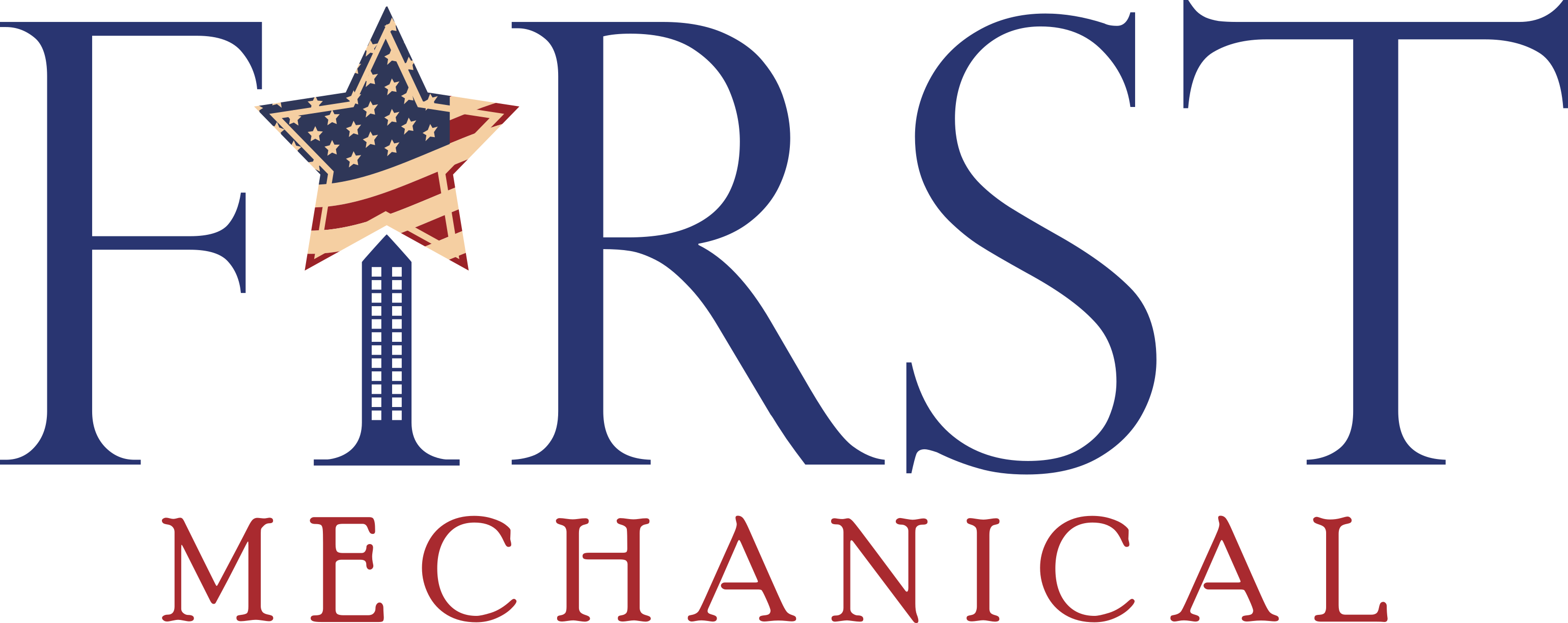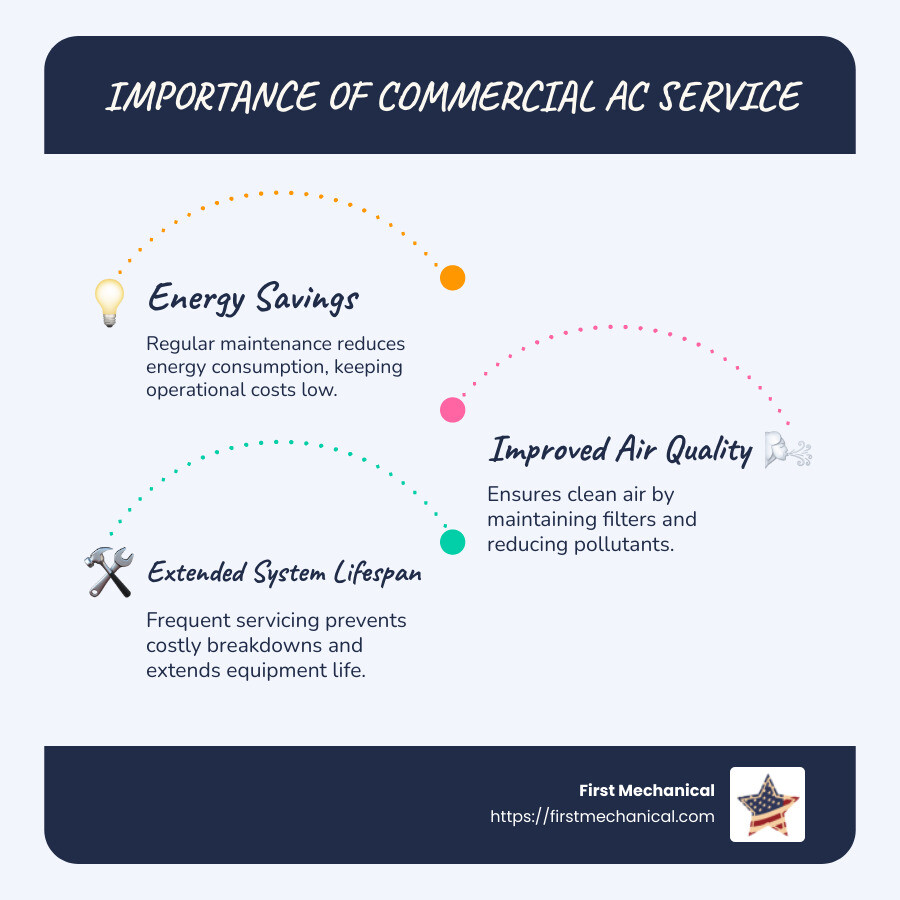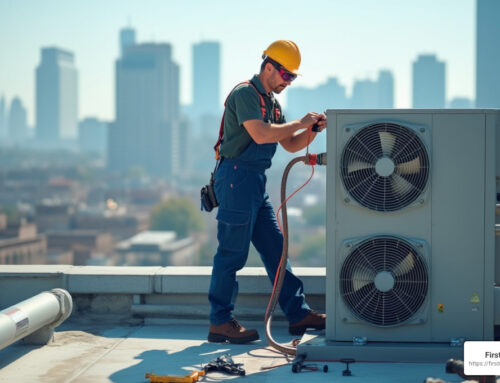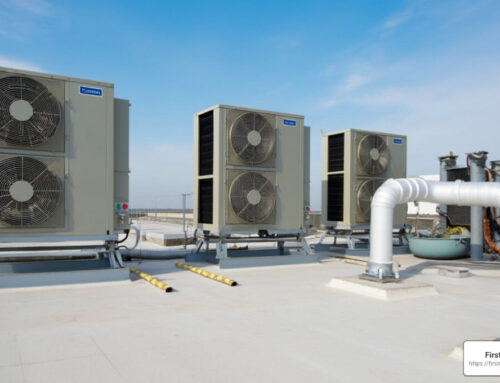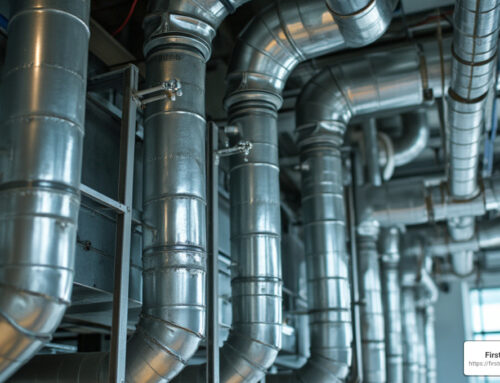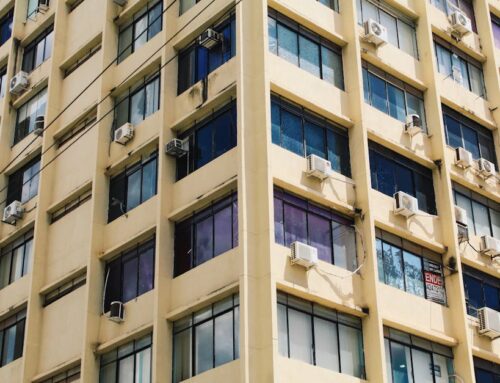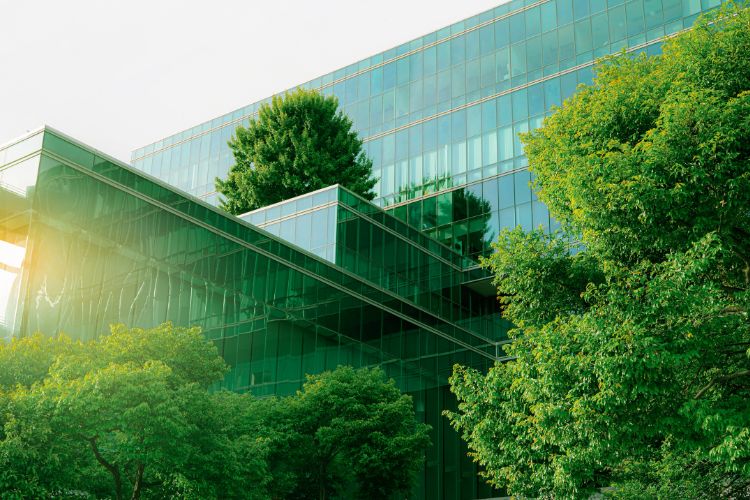
Commercial AC service plays a vital role in maintaining a comfortable environment in commercial spaces like malls, offices, and industrial buildings. This service ensures that the commercial HVAC systems—responsible for heating, ventilation, and air conditioning—operate efficiently. Facility managers face several challenges, such as unexpected breakdowns and high energy bills, which can disrupt business operations and tenant satisfaction.
-
What is Commercial AC Service?
It’s the maintenance and repair of heating, ventilation, and air conditioning systems to ensure they work efficiently and effectively in commercial buildings. -
Why is it Important?
Regular service prevents costly breakdowns, reduces energy consumption, and extends the lifespan of your HVAC system. -
Key Benefits:
- Improved air quality
- Energy cost savings
- Less downtime and fewer interruptions
For facility managers like Frank, addressing these aspects is crucial to minimize disruptions and keep tenants happy.
Understanding Commercial AC Systems
When it comes to commercial AC service, understanding the types of systems available is crucial. Two popular systems in commercial settings are VRF (Variable Refrigerant Flow) and VRV (Variable Refrigerant Volume). Although they might sound different, these terms often refer to the same technology, with VRV being a trademarked term by Daikin.
VRF and VRV Systems
VRF systems are advanced HVAC solutions that offer both cooling and heating capabilities. They work by adjusting the refrigerant flow to multiple indoor units, allowing for precise temperature control in different zones of a building. This flexibility makes them ideal for commercial spaces with varying climate needs.
-
Efficiency: VRF systems are known for their energy efficiency. By only delivering the necessary amount of refrigerant to each zone, they minimize energy waste.
-
Zoning Capabilities: These systems can simultaneously heat one area while cooling another, offering unparalleled comfort and control.
-
Quiet Operation: Due to their design, VRF systems operate quietly, making them suitable for environments where noise levels need to be kept low.
Cooling and Heating Capabilities
The dual cooling and heating capabilities of VRF and VRV systems are a significant advantage. They can seamlessly switch between modes, ensuring year-round comfort without the need for separate systems. This feature is especially beneficial in regions with fluctuating temperatures or in buildings with diverse climate requirements.
Benefits for Commercial Buildings
For facility managers, choosing a VRF or VRV system can lead to substantial benefits:
-
Cost Savings: The energy efficiency of these systems translates to lower utility bills.
-
Space-Saving Design: With fewer components, they require less space than traditional HVAC systems, freeing up valuable real estate.
-
Reduced Maintenance: Fewer moving parts mean less wear and tear, leading to reduced maintenance needs and costs.
By understanding these systems and their capabilities, businesses can make informed decisions that improve comfort while maintaining cost-effectiveness. This knowledge is vital for ensuring that commercial HVAC systems meet the demands of modern buildings efficiently.
Next, we will dig into the key components of commercial AC service, focusing on essential maintenance tasks that keep these systems running smoothly.
Key Components of Commercial AC Service
Maintaining commercial AC systems is essential to ensure they run efficiently and last longer. Here are the key components of commercial AC service that every business should focus on:
Filter Cleaning
Regular filter cleaning is crucial for maintaining air quality and system efficiency. Dirty filters restrict airflow and force the system to work harder, which can lead to increased energy consumption and potential damage.
- Frequency: Filters should be checked monthly and cleaned or replaced as needed, especially in high-use environments.
- Impact: Clean filters improve indoor air quality by trapping dust, pollen, and other particles.
Electrical Systems Checks
Electrical components are the backbone of any AC system. Regular checks ensure these components are functioning correctly and safely.
- Inspections: Technicians should inspect electrical connections, wiring, and control systems for any signs of wear or damage.
- Safety: Loose or faulty connections can cause malfunctions or even pose a fire risk, so regular checks are critical.
Coil Cleaning
Coils play a vital role in heat exchange. When they become dirty, they can’t transfer heat effectively, leading to reduced efficiency and higher energy bills.
- Process: Coils should be cleaned with a soft brush or coil cleaner spray to remove dust and debris.
- Benefits: Clean coils improve the system’s cooling and heating efficiency, extending the system’s lifespan.
Lubrication
Friction can cause wear and tear on moving parts, leading to breakdowns. Lubrication is key to keeping these parts running smoothly.
- Targets: Focus on motors and bearings, as these are the parts most affected by friction.
- Technique: Use the right lubricant as specified in the system’s manual, and apply it carefully to avoid attracting dirt.
By focusing on these components, businesses can ensure their commercial AC service is comprehensive and effective. Regular maintenance not only improves system performance but also contributes to energy savings and cost reduction.
Benefits of Regular Commercial AC Maintenance
Regular maintenance of commercial AC systems is more than just a good practice—it’s a necessity. Here’s why:
Improved Safety
Safety is a top priority for any business. Regular commercial AC maintenance helps prevent potential hazards like electrical fires and refrigerant leaks. By ensuring that all components are in good working order, businesses can avoid safety risks that could harm employees or customers.
- Electrical Safety: Routine checks of electrical systems prevent issues like short circuits or overheating.
- Refrigerant Checks: Ensuring refrigerant levels are correct helps prevent leaks that could be harmful.
Improved Air Quality
Indoor air quality directly affects the health and comfort of building occupants. Regular maintenance helps keep air clean and breathable by ensuring that filters and ducts are free of dust and pollutants.
- Filter Maintenance: Clean filters trap dust, pollen, and other airborne particles.
- Duct Cleaning: Regular duct inspections prevent mold and bacteria buildup, improving overall air quality.
Increased Energy Efficiency
A well-maintained AC system runs more efficiently, using less energy to cool or heat a building. This efficiency not only reduces environmental impact but also lowers utility bills.
- Energy Savings: Properly maintained systems consume less energy, leading to significant cost savings.
- Efficiency Checks: Regular tune-ups ensure that all parts are working at their optimal capacity.
Cost Savings
Preventive maintenance can significantly reduce long-term costs. By addressing minor issues before they become major problems, businesses can avoid expensive repairs and extend the lifespan of their AC systems.
- Reduced Repairs: Routine checks catch small issues early, preventing costly breakdowns.
- Extended Lifespan: Regular maintenance can add years to an AC system’s life, delaying the need for replacement.
By investing in regular commercial AC maintenance, businesses can reap these benefits, ensuring a safe, comfortable, and cost-effective environment for all.
How Often Should Commercial AC Units Be Serviced?
The frequency of servicing commercial AC units is crucial for maintaining their efficiency and reliability. While the general recommendation is annual servicing, the specific needs of your system might vary based on several factors.
Annual Servicing
Most experts agree that commercial AC systems should undergo a comprehensive check-up at least once a year. This annual servicing ensures that all components are functioning correctly and that any potential issues are addressed before they escalate.
- Comprehensive Check: Includes filter cleaning, coil inspections, and electrical system checks.
- Preventive Measures: Identifies and resolves minor problems before they lead to costly repairs.
Maintenance Schedule
Creating a maintenance schedule custom to your system’s demands is key. This schedule should consider the type of system, its age, and its usage patterns.
- System Type: Different systems, such as VRF or VRV, may have specific maintenance needs.
- Usage Patterns: Systems used heavily during peak seasons might require more frequent checks.
System Demands
The demands placed on your AC system can also influence how often it should be serviced. Factors like building size, occupancy levels, and local climate conditions can increase the wear and tear on your system.
- High-Demand Environments: Buildings with high occupancy or in extreme climates may need more frequent servicing.
- Custom Plans: Custom maintenance plans can address specific demands and ensure uninterrupted performance.
By adhering to a well-planned maintenance schedule, businesses can ensure their commercial AC units operate smoothly and efficiently, preventing unexpected breakdowns and extending the system’s lifespan. In the next section, we’ll address some frequently asked questions about commercial AC service.
Frequently Asked Questions about Commercial AC Service
What does commercial HVAC maintenance include?
Commercial HVAC maintenance is essential to keep your systems running smoothly. It typically involves several key tasks:
-
Filter Cleaning: Dirty filters can restrict airflow, causing the system to work harder and use more energy. Regular cleaning or replacement is crucial to maintain efficiency and air quality.
-
Electrical Checks: Loose or faulty electrical connections can lead to system failures or even pose fire hazards. Regular checks ensure all connections are secure and functioning properly.
-
Coil Cleaning: Coils play a critical role in heat exchange. If they’re dirty, your system has to work harder, reducing efficiency and increasing wear and tear. Cleaning coils helps maintain optimal performance.
These tasks help prevent small issues from becoming big problems, ensuring your system runs efficiently and safely.
Why is commercial HVAC so expensive?
Several factors contribute to the cost of commercial HVAC systems:
-
Equipment Capacity: Commercial systems are designed to handle larger spaces and higher demands than residential units. This means they require more robust and often more expensive components.
-
Installation Labor: Installing a commercial HVAC system is complex and labor-intensive. It requires skilled technicians to ensure everything is set up correctly and complies with building codes.
-
System Type: Different types of systems, like VRF (Variable Refrigerant Flow) and VRV (Variable Refrigerant Volume), have different costs associated with them. These advanced systems offer precise temperature control and energy efficiency, but they can be more costly to install and maintain.
These factors combined make commercial HVAC systems a significant investment, but one that is crucial for maintaining a comfortable and efficient environment in a business setting.
What is a commercial AC unit called?
In commercial HVAC, you’ll encounter various terms for different types of systems:
-
VRF Systems: These systems allow for simultaneous heating and cooling in different zones of a building, providing flexibility and energy efficiency.
-
VRV Systems: Similar to VRF, VRV systems offer variable refrigerant flow, allowing for precise control over different areas within a building.
Both VRF and VRV systems are popular choices for commercial settings due to their ability to efficiently manage large spaces with varying climate needs.
Understanding these terms can help you make informed decisions about the best system for your business’s needs. In the next section, we’ll wrap up with a look at how First Mechanical can provide comprehensive HVAC services custom to your specific requirements.
Conclusion
At First Mechanical, we understand that every business has unique heating, ventilation, and air conditioning needs. That’s why we offer comprehensive HVAC services custom to meet those specific requirements.
Our team specializes in commercial AC services, ensuring that your systems are running efficiently and effectively. Whether you need installation, repair, or maintenance, we’re here to provide solutions that keep your business environment comfortable and productive.
Custom solutions are at the heart of what we do. We don’t believe in a one-size-fits-all approach. Instead, we work closely with you to understand your business’s unique demands and design a service plan that fits. This personalized approach not only improves system performance but also improves energy efficiency and cost savings.
When you choose First Mechanical, you’re choosing a partner committed to delivering quality and reliability. Our responsive service and expert technicians ensure that you receive the assistance you need, exactly when you need it.
Ready to optimize your commercial HVAC system? Contact us today for custom solutions that suit your business needs. Let us help you maintain a comfortable and efficient environment for your employees and customers.
